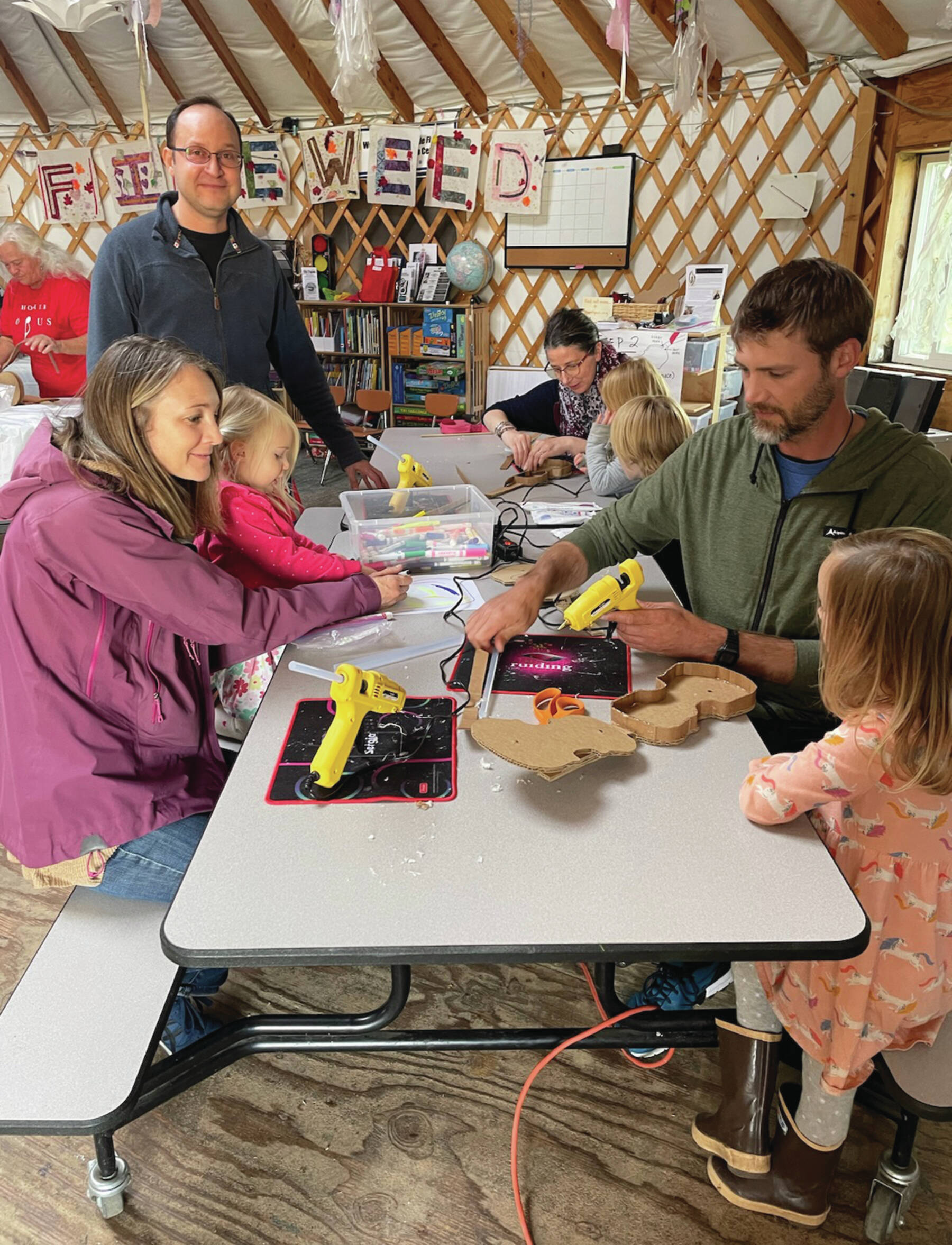Abimael Melendez has started his second year as the conductor for Homer youth string-instrument musicians with the local organization OPUS.
Homer OPUS is a nonprofit organization that delivers string-based music programs to youth ages kindergarten through 12th grade and adults.
Melendez was born and raised in Carora, Venezuela, and is a product of the country music program El Sistema. He started working with the Aragua Symphony Orchestra in Venezuela when he was around 18 years old. Melendez holds a Bachelor of Music in violin performance, a master’s in education and a doctorate in educational sciences. He has also received a master’s in music education from Bard College’s Longy School of Music in Cambridge, Massachusetts. He finished his degree there in 2022.
“Around March of last year, my conductor at Bard gave me some information about Homer and told me about the program here. I read the introduction and found out it was at the end of the road,” Melendez said.
Before he could come to Homer, Melendez left Massachusetts to return to Ecuador, to which he immigrated with his family in 2018. Prior to education in the United States, Melendez worked at a music conservatory in Ecuador for college-level students until he received a scholarship to the Longy School.
“When we first immigrated to Ecuador, my family thought that’s where we would stay but I noticed some issues there with education. So, even though I was working and playing in the operette there, I started taking some English classes.
“When I received the scholarship to Longy, I decided to take the jump and take the opportunity. It was a full scholarship and I couldn’t say no. But, my family couldn’t come with me. My wife is a doctor and she needed to stay for work,” he said.
The music degree in Massachusetts took a year to complete. In the summer of 2022, Melendez decided to apply for the position in Homer and OPUS invited him to come visit for a one-week trial. In September, the group offered him the conducting position.
“I decided to stay here and take the opportunity after consulting with my wife and family,” he said.
The decision was not without difficulties, he explained. When Melendez came to Homer for the trial visit, his Ecuadorian passport expired and he was not able to renew it, so he remained in Homer without his family. Now his family has been able to join him.
Melendez has a fourth grade child who is attending West Homer Elementary School, and his wife is taking courses at Kenai Peninsula College of the University of Alaska Anchorage because she is interested in working in the health field in the community, he said.
“So, we are here. We never thought we would come to the United States and even less to Alaska,” he said. “Originally, we thought we would stay in Venezuela. We didn’t want to immigrate but the socioeconomic situation in the country in 2018 was really complex and Ecuador was more stable. I guess life just shows you the way of the road (on which) you are going.”
Melendez talked more about his long-term connection to El Sistema, an internationally distinguished social activism program related to engagement in music that was started in Caracas, Venezuela in the 1970s. According to authors Tricia Tunstall and Eric Booth in their book “Playing for Their Lives: The Global El Sistema Movement for Social Change Through Music” published in 2016, the past decade has seen an explosion of interest in El Sistema throughout the world.
“In the United States, there are Sistema-inspired programs in over a hundred cities. The global Sistema now includes over 370 programs, over 1,000 nucleos (the Venezuelan term for a Sistema community music center), over 1,500 choruses, over 2,000 youth orchestras and almost one million children,” the authors write.
There are three school groups engaged in the Homer OPUS program: the Paul Banks Preludes, the Fireweed Frescoes and the Chapman Eagle Ensemble. The schools begin their lessons by making cardboard violins so they can learn how to handle the instruments with care in the introductory stages. Last week, Fireweed and Chapman had their construction dates and Paul Banks will construct theirs on Oct. 2.
OPUS board member and Fireweed Frescoes founder Kim Fine offered her point of view on the benefit of the music program.
“I’m not a classical musician but I know what it does and offers these kids. I see what happens. Their stamina is up, their focus is up. Once they hold this thing of beauty in their hands — the real violins are so lovely to hold that it gives them the chance to bring their best self in. They’re a part of something special,” she said.
Melendez talked more about what he is continuing to learn in Homer and how his family is adjusting to life here.
“My English is improving and the kids are my best teachers! My son is really more interested in just knowing the other kids and playing here. His English and phrases are transforming, too, but a lot of the kids he is with are interested in learning Spanish words and hearing about where he is from. West Homer Elementary School has been really supportive of him.”
Melendez concluded the conversation by commenting on the support he and his family have received in general in Homer.
“When I first came here, after my experiences in Boston, there were so many people there that I felt more alone. In Homer, there are more people supporting (you); any time I see someone they ask me about my family or my son. It has been really emotionally supportive for us here and we are very thankful for that.”


